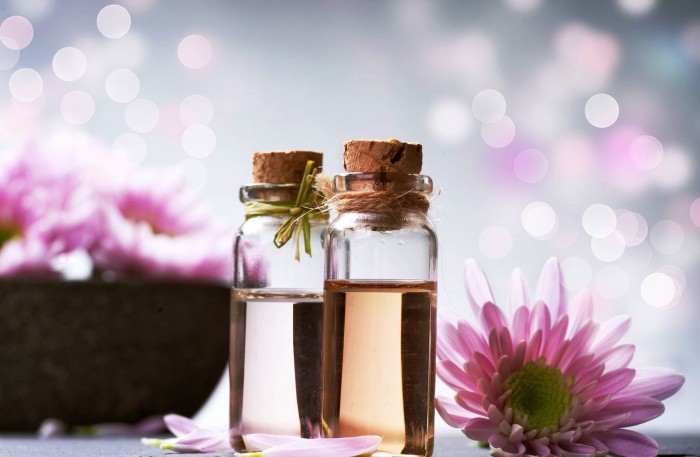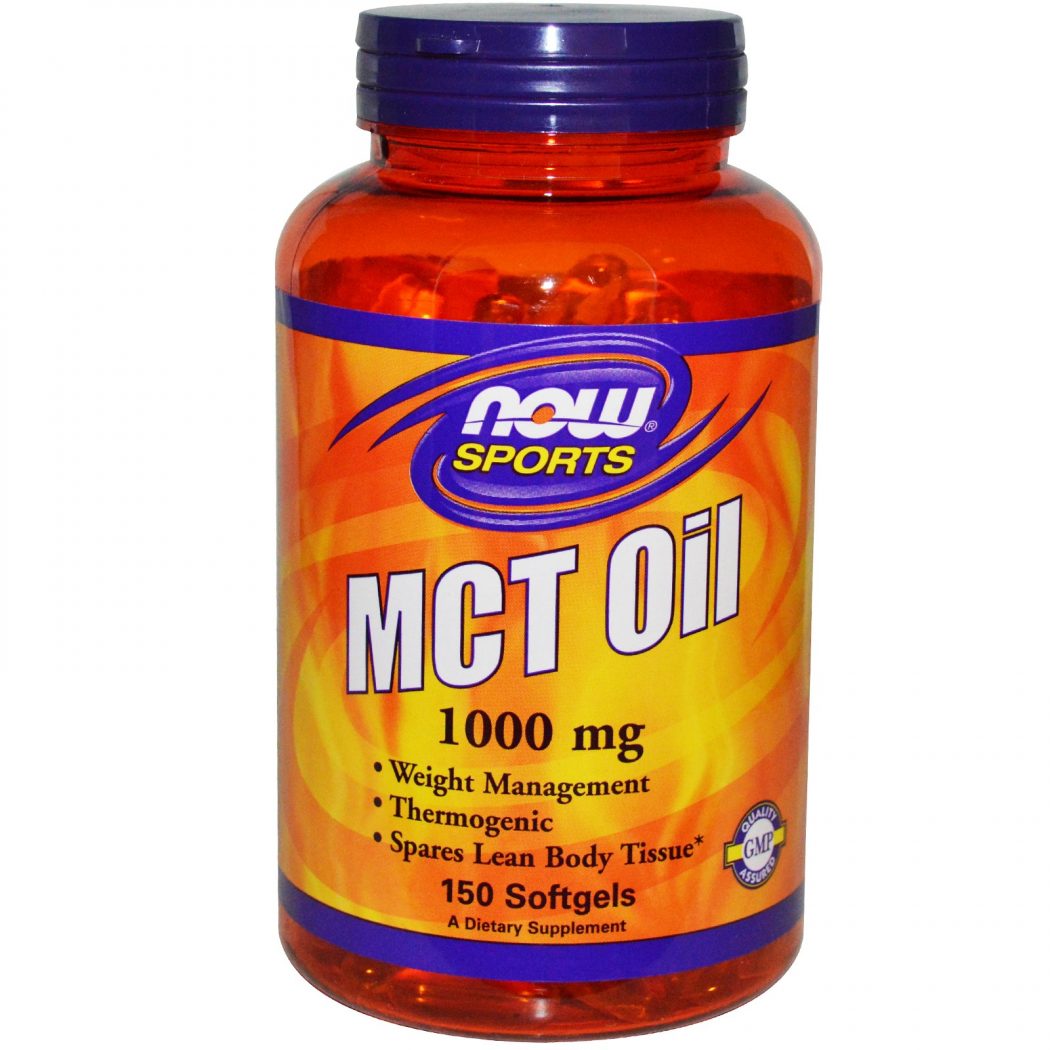
Top 10 Best Hair Growth Oils: Rosemary & Peppermint Oil Picks
In the quest for healthy, luscious locks, many individuals turn to hair growth oils as a natural remedy. Among the most popular oils are rosemary and peppermint, known for their ability to stimulate hair growth and improve overall hair health.
With a rich array of essential oils available, understanding their benefits and how to use them effectively can make a significant difference in your hair care regimen. This article explores the best hair growth oils, focusing on rosemary and peppermint oil, and provides insights on how to incorporate them into your routine.
What are the Benefits of Using Hair Growth Oils?
How do Hair Oils Promote Hair Growth?
Hair growth oils are packed with nutrients that can help promote hair growth. Oils like rosemary essential oil(get the best) and peppermint oil stimulate the hair follicles, encouraging stronger hair growth by improving blood circulation in the scalp. These oils also contain antioxidants and vitamins that nourish the hair shaft, leading to healthier, thicker hair.
Additionally, using a hair oil regularly can enhance the overall health of your hair and scalp, preventing dryness and breakage. The application of oils directly onto the scalp can create a nurturing environment that promotes hair density and encourages hair growth over time.
Incorporating hair oils into your routine can provide a multitude of benefits. For instance, rosemary oil (here) is known to stimulate hair follicles, which can lead to an increase in hair density. Likewise, peppermint oil (buy here) has a cooling effect that can invigorate the scalp, enhancing blood flow and promoting hair growth.
Oils such as jojoba and almond oil also play significant roles in maintaining moisture levels, preventing dry hair, and ensuring that the hair and scalp remain healthy. By regularly applying these oils, you can effectively create a routine that not only encourages hair growth but also fortifies your hair against damage.
Which Oils are Best for Hair Growth?
When exploring the best oils for hair growth, several options stand out due to their effective properties. Rosemary oil is frequently cited as one of the best hair growth oils because it helps stimulate hair follicles, promoting hair growth and preventing hair loss. Peppermint oil is another excellent choice, known for its invigorating effects that enhance blood circulation to the scalp.
Other notable oils include castor oil(get the deal), which is rich in ricinoleic acid, known for its ability to strengthen the hair and encourage hair growth. Additionally, coconut oil and argan oil offer moisturizing properties that can help with dry hair while simultaneously promoting hair health.
In addition to rosemary and peppermint oils, using a combination of various oils can enhance their effectiveness. For example, castor oil has been shown to support hair growth due to its high fatty acid content. Similarly, jojoba oil mimics the natural oils produced by the scalp, helping to balance moisture levels.
Tea tree oil also deserves mention for its ability to promote a healthy scalp, free from dandruff and irritation, thus allowing for better hair growth. By carefully selecting and combining these oils, you can create a personalized hair care routine that targets your specific hair growth needs.
Can Hair Growth Oils Help with Hair Loss?
Hair growth oils can indeed play a significant role in addressing hair loss concerns. Many natural oils, including rosemary oil, have been shown to help with hair loss by strengthening hair follicles and promoting healthy hair growth. Research suggests that rosemary essential oil can be as effective as some conventional treatments for androgenetic alopecia, a common form of hair loss.
These oils not only stimulate the hair follicles but also provide essential nutrients that nourish the scalp and hair, thereby reducing the likelihood of hair thinning and loss.
Furthermore, the application of oils like peppermint oil and castor oil can help create a conducive environment for hair growth while preventing hair loss. These oils contain properties that combat inflammation and promote blood circulation, which are crucial for maintaining healthy hair follicles.
Regular use of hair growth oils can help mitigate the effects of hair loss, resulting in stronger and thicker hair over time. By targeting the underlying causes of hair loss, these oils offer a natural, effective solution for those looking to enhance their hair’s vitality and prevent further loss.
How to Use Rosemary Oil for Hair Growth?
Can I Apply Rosemary Oil Directly to My Scalp?
Yes, you can apply rosemary oil directly to your scalp, but it’s essential to dilute it with a carrier oil for optimal results. Carrier oils, such as coconut oil or jojoba oil, not only help in diluting the potent rosemary essential oil but also provide additional nourishment to the hair and scalp.
When applying rosemary oil, it’s advisable to mix a few drops with a carrier oil and massage it gently into the scalp. This method not only helps in stimulating the hair follicles but also makes the application process more enjoyable and effective.
Direct application of rosemary oil can enhance its effectiveness in stimulating hair growth. However, undiluted essential oils can be potent and may cause irritation for some individuals. Therefore, mixing the rosemary oil with a carrier oil is a wise choice, as it provides a soothing experience.
Additionally, this method helps the oil penetrate deeper into the hair shaft and scalp, maximizing its benefits. By creating a blend, you can ensure that you are nurturing your hair while also promoting a healthy environment for hair growth.
What is the Best Way to Use Rosemary Oil for Hair?
The best way to use rosemary oil for hair growth is to create a hair oil treatment. Start by mixing a few drops of rosemary oil with a carrier oil, such as coconut or almond oil. This blend should be massaged into the scalp and hair, focusing on areas prone to thinning.
Leave the oil in for at least 30 minutes or even overnight for deeper penetration before washing it out with a gentle shampoo. This practice can enhance both the health of your hair and stimulate hair growth.
Using rosemary oil as a treatment can significantly improve its effectiveness. To optimize results, consider applying the oil to slightly damp hair, as this can enhance absorption. You might also want to incorporate heat by wrapping your hair in a warm towel, which can further help in penetrating the scalp and stimulating hair follicles.
Regular application of this oil blend can lead to noticeable improvements in hair health and growth, making it a vital part of your hair care routine. By integrating rosemary oil into your regimen, you can take substantial steps toward achieving your hair growth goals.
How Often Should I Use Rosemary Oil for Hair Growth?
For optimal results, using rosemary oil for hair growth should be part of your weekly routine. It’s generally recommended to apply the oil 1-2 times per week, ensuring that you give your scalp and hair enough time to absorb the nutrients. Overuse can lead to irritation, so it’s essential to monitor how your scalp reacts. Adjust the frequency based on your hair and scalp condition for the best outcome.
Finding the right balance in your application frequency is crucial for experiencing the full benefits of rosemary oil. Many individuals find that a weekly treatment is sufficient to promote hair growth and maintain healthy hair. Regular use allows the oil to build up in the hair and scalp, optimizing its effectiveness over time.
Always remember to listen to your body; if you experience any irritation, consider reducing the application frequency or further diluting the oil. Creating a sustainable routine will ensure that you are consistently nurturing your hair while promoting growth without overwhelming your scalp.
What are the Best Hair Growth Oils Available?
Top 10 Hair Growth Oils to Consider
When searching for the best hair growth oils available, several standout options can significantly enhance your hair care routine. Among the top picks are rosemary oil, known for its ability to stimulate hair follicles and promote hair growth, and peppermint oil, which invigorates the scalp and improves circulation.
Other excellent choices include castor oil, famous for its strengthening properties, and coconut oil, which deeply moisturizes the hair. Argan oil and jojoba oil also deserve mention for their nourishing qualities, making them favorites in the realm of hair care.
In addition to these, almond oil is a fantastic option as it provides essential vitamins and minerals that contribute to healthy hair. Tea tree oil is another oil worth considering, especially for those dealing with scalp issues, as it helps maintain a clean and healthy scalp environment.
Each of these oils brings unique benefits that can work synergistically to enhance hair growth and overall hair health. By exploring these options, you can find the best hair growth oils tailored to your specific needs, ensuring a comprehensive approach to achieving your hair goals.
What Makes Rosemary Oil a Popular Choice for Hair Growth?
Rosemary oil has gained immense popularity as a go-to solution for hair growth due to its scientifically backed effectiveness. Studies suggest that rosemary oil can stimulate hair follicles, promoting hair growth while also helping to prevent hair loss.
Its natural composition includes antioxidants and anti-inflammatory properties that support healthy hair and scalp, making it an ideal choice for those struggling with thinning hair. Additionally, the pleasant aroma and ease of use make it a favored option for many.
Moreover, the versatility of rosemary oil adds to its appeal, as it can be easily incorporated into various hair care routines. Whether used in its pure form or mixed with carrier oils, rosemary essential oil offers a multitude of benefits for hair growth.
Its ability to improve blood circulation in the scalp is particularly noteworthy, as increased circulation can lead to healthier hair follicles and enhanced growth. As more individuals discover the advantages of rosemary oil, it continues to solidify its status as a must-have in the realm of hair care.
How Does Peppermint Oil Contribute to Hair Health?
Peppermint oil is renowned for its refreshing scent and invigorating properties, which can significantly contribute to hair health. This essential oil stimulates blood circulation to the scalp, promoting hair growth and helping to prevent hair loss.
The menthol present in peppermint oil creates a cooling sensation that not only feels refreshing but also helps to open up hair follicles, allowing for better absorption of nutrients from other hair care products. This unique property makes peppermint oil a valuable addition to any hair care regimen.
Furthermore, peppermint oil possesses antimicrobial properties that can aid in maintaining a clean and healthy scalp. This aspect is crucial for preventing dandruff and other scalp issues that can hinder hair growth.
By incorporating peppermint oil into your hair care routine, you are not only encouraging hair growth but also ensuring that your scalp remains in optimal condition. The combination of stimulating properties and antimicrobial benefits makes peppermint oil an essential ingredient for those seeking to improve their hair health and vitality.
Can Coconut Oil Help with Hair Growth?
How Does Coconut Oil Promote Hair Growth?
Coconut oil has long been celebrated for its myriad benefits in hair care, particularly in promoting hair growth. Rich in fatty acids, coconut oil penetrates the hair shaft effectively, providing deep hydration and nourishment. This ability to penetrate allows coconut oil to reduce protein loss, which can be a significant factor in maintaining the strength and health of your hair.
Regular application of coconut oil not only helps to moisturize the hair but also creates a protective barrier against environmental damage.
Additionally, coconut oil is known for its antibacterial and antifungal properties, making it excellent for maintaining a healthy scalp. A healthy scalp is essential for encouraging hair growth, as it allows hair follicles to thrive without the interference of dandruff or irritation.
By massaging coconut oil into the scalp, you can enhance blood circulation, which further promotes healthy hair growth. The combination of deep nourishment and scalp health makes coconut oil one of the best options for those looking to enhance their hair growth journey.
Is Coconut Oil Effective for All Hair Types?
Coconut oil is versatile and can be effective for a variety of hair types, but its effectiveness may vary depending on individual needs. For individuals with dry or damaged hair, coconut oil can provide much-needed moisture and repair, making it an excellent option.
However, those with fine or oily hair may find that coconut oil weighs their hair down if used excessively. It’s crucial to tailor the application of coconut oil to suit your specific hair type, ensuring that you reap the benefits without compromising volume or texture.
Experimenting with coconut oil can help you determine the right balance for your hair type. For those with curly or coarse hair, coconut oil can enhance moisture retention and reduce frizz, leading to healthier-looking curls.
On the other hand, individuals with fine hair may benefit from using less oil or mixing it with lighter oils, such as jojoba oil, to avoid a greasy appearance. By understanding your hair’s unique characteristics, you can effectively harness the power of coconut oil to promote healthy hair growth tailored to your needs.
What is the Role of Essential Oils in Hair Care?
How Do Essential Oils Stimulate Hair Growth?
Essential oils play a vital role in hair care, particularly in stimulating hair growth. Oils like rosemary and peppermint are renowned for their ability to invigorate the scalp, enhance blood circulation, and nourish hair follicles.
These oils contain active compounds that can penetrate the scalp, providing essential nutrients that encourage hair growth and strengthen existing hair. By fostering a healthy environment for hair follicles, essential oils can lead to thicker, healthier hair over time.
Moreover, the aromatic properties of essential oils contribute to a soothing experience during application, making hair care routines more enjoyable. The calming effects of essential oils can also reduce stress, which is known to impact hair health negatively.
By using essential oils regularly, you not only promote hair growth but also create a holistic approach to hair care that addresses both physical health and emotional well-being. This dual benefit underscores the importance of incorporating essential oils into your hair care regimen for optimal results.
Which Essential Oils are Best for Hair Health?
Several essential oils stand out for their exceptional benefits in promoting hair health. Rosemary oil is a top choice, known for its ability to stimulate hair growth and improve scalp circulation. Peppermint oil follows closely, invigorating the scalp and providing a refreshing sensation while promoting healthy hair follicles.
Other essential oils, such as tea tree oil, are excellent for maintaining a clean and healthy scalp, preventing dandruff and buildup that can hinder hair growth. Additionally, lavender oil is known for its calming properties, which can help reduce stress and promote a healthy hair growth environment.
Each essential oil brings unique properties that cater to different hair care needs. For example, chamomile oil is beneficial for adding shine and softness to hair, while cedarwood oil can help balance oil production on the scalp.
By combining various essential oils, you can create a customized hair care routine that addresses specific concerns, whether it’s promoting growth, enhancing shine, or maintaining scalp health. Exploring these options allows you to maximize the benefits of essential oils in your hair care journey.
How to Treat Hair Loss with Oils?
What Oils are Effective for Preventing Hair Loss?
When it comes to preventing hair loss, certain oils have proven to be particularly effective. Rosemary oil is often at the forefront, known for its ability to stimulate hair follicles and promote hair growth. Peppermint oil also plays a crucial role by enhancing blood circulation to the scalp, which is essential for nourishing hair roots. Castor oil is another powerful option, rich in ricinoleic acid, which has been shown to strengthen hair strands and prevent breakage.
Additionally, tea tree oil’s antimicrobial properties can help maintain a healthy scalp, further preventing hair loss.
Utilizing a combination of these oils can provide a comprehensive approach to treating hair loss. For instance, creating a blend of rosemary oil and castor oil can harness the growth-promoting properties of both oils while ensuring the scalp remains healthy.
Regularly massaging these oils into the scalp not only stimulates hair follicles but also promotes relaxation, which can further support hair health. By incorporating these effective oils into your routine, you can take proactive steps toward preventing hair loss and nurturing your hair.
Can Regular Use of Oils Strengthen Hair?
Yes, regular use of oils can significantly strengthen hair and improve its overall health. Oils such as coconut and jojoba provide essential fatty acids and nutrients that help maintain the integrity of the hair shaft. By deeply nourishing the hair, these oils can reduce breakage, improve elasticity, and promote a shinier appearance.
Additionally, incorporating oils like castor and argan oil can further enhance hair strength, making it less prone to damage from environmental stressors.
Establishing a routine that includes regular oil treatments can create a protective barrier around the hair, reducing moisture loss and preventing dryness. This is especially beneficial for individuals with dry or damaged hair, as oils can help replenish lost moisture and restore vitality.
By integrating these practices into your hair care routine, you can achieve not only stronger hair but also improved manageability and shine, making your hair look and feel healthier overall.
Is There a Specific Oil for Androgenetic Alopecia?
Androgenetic alopecia, commonly known as male or female pattern baldness, can be addressed with specific oils that have shown potential benefits. Rosemary oil, in particular, has been studied for its effectiveness in stimulating hair growth and may be beneficial for those experiencing this type of hair loss.
Research suggests that rosemary oil can be as effective as minoxidil, a conventional treatment, in promoting new hair growth. Its ability to improve blood circulation in the scalp enhances nutrient delivery to hair follicles, which is crucial in combating hair loss associated with androgenetic alopecia.
In addition to rosemary oil, other oils like peppermint oil may also provide support in treating androgenetic alopecia. The invigorating properties of peppermint oil can stimulate hair follicles and increase circulation, supporting overall hair health.
While oils can offer a natural approach to hair loss treatment, it’s essential to manage expectations and combine these treatments with a comprehensive hair care routine. By integrating these oils into your regimen, you can foster a nurturing environment for hair growth while addressing the specific challenges posed by androgenetic alopecia.















